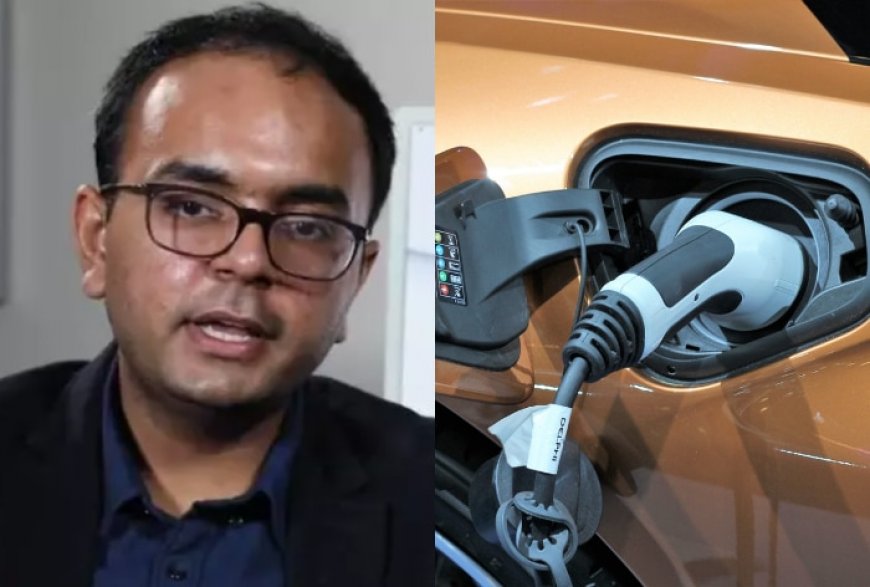Indian-Origin Researcher In US Discovers Tech To Charge Dead Laptop or Phone In A Minute And Cars In 10 Minutes
Ankur Gupta, an assistant professor of chemical and biological engineering at the University of Colorado Boulder in the United States, found this breakthrough technology with his team of researchers.

In today’s fast-paced world of science and technology, the majority of our time is consumed by charging our various electric appliances. However, imagine a scenario where you can now charge your dead laptop or smartphone in just a minute – an incredible feat made possible by the latest technological advancement. An Indian-origin researcher, Ankur Gupta, along with his team at the University of Colorado Boulder, has unveiled a groundbreaking technology that enables the rapid charging of laptops, phones, and even electric cars in record time.
In the study published in the journal Proceedings of the National Academy of Sciences, the researchers discovered how tiny charged particles, called ions, move within a complex network of minuscule pores. As per Gupta, the development of more efficient storage devices like supercapacitors can be accelerated by this breakthrough discovery.
A supercapacitor is an energy storage device that relies on ion collection in its pores, Gupta said, adding that this invention is crucial for EVs, electronic devices and power grids. It is pertinent to mention that supercapacitors can charge faster and have longer life spans than batteries.
Regarding power grids, the assistant professor said fluctuating energy demands require efficient storage to minimize waste during low-demand periods and guarantee rapid delivery during high-demand times.
“Given the critical role of energy in the planet’s future, I felt inspired to apply my chemical engineering knowledge to advancing energy storage devices,” Gupta said. “It felt like the topic was somewhat underexplored and, as such, the perfect opportunity,” Gupta said as quoted by the journal.
“The primary appeal of supercapacitors lies in their speed. So how can we make their charging and release of energy faster? By the more efficient movement of ions. That’s the leap of the work. We found the missing link,” he added.
Gupta also noted that this discovery enables the simulation and prediction of ion flow in a complex network of thousands of interconnected pores within minutes. They explained that, before this finding, ion movements were only described in the literature as occurring within a single straight pore.
A report by Phys.org quoted Ankur Gupta as saying, “Given the critical role of energy in the future of the planet, I felt inspired to apply my chemical engineering knowledge to advancing energy storage devices. It felt like the topic was somewhat underexplored and, as such, the perfect opportunity.”
He added, “The primary appeal of supercapacitors lies in their speed. So how can we make their charging and release of energy faster? By the more efficient movement of ions. That’s the leap of the work. We found the missing link.”
(With inputs from agencies)
What's Your Reaction?



























































